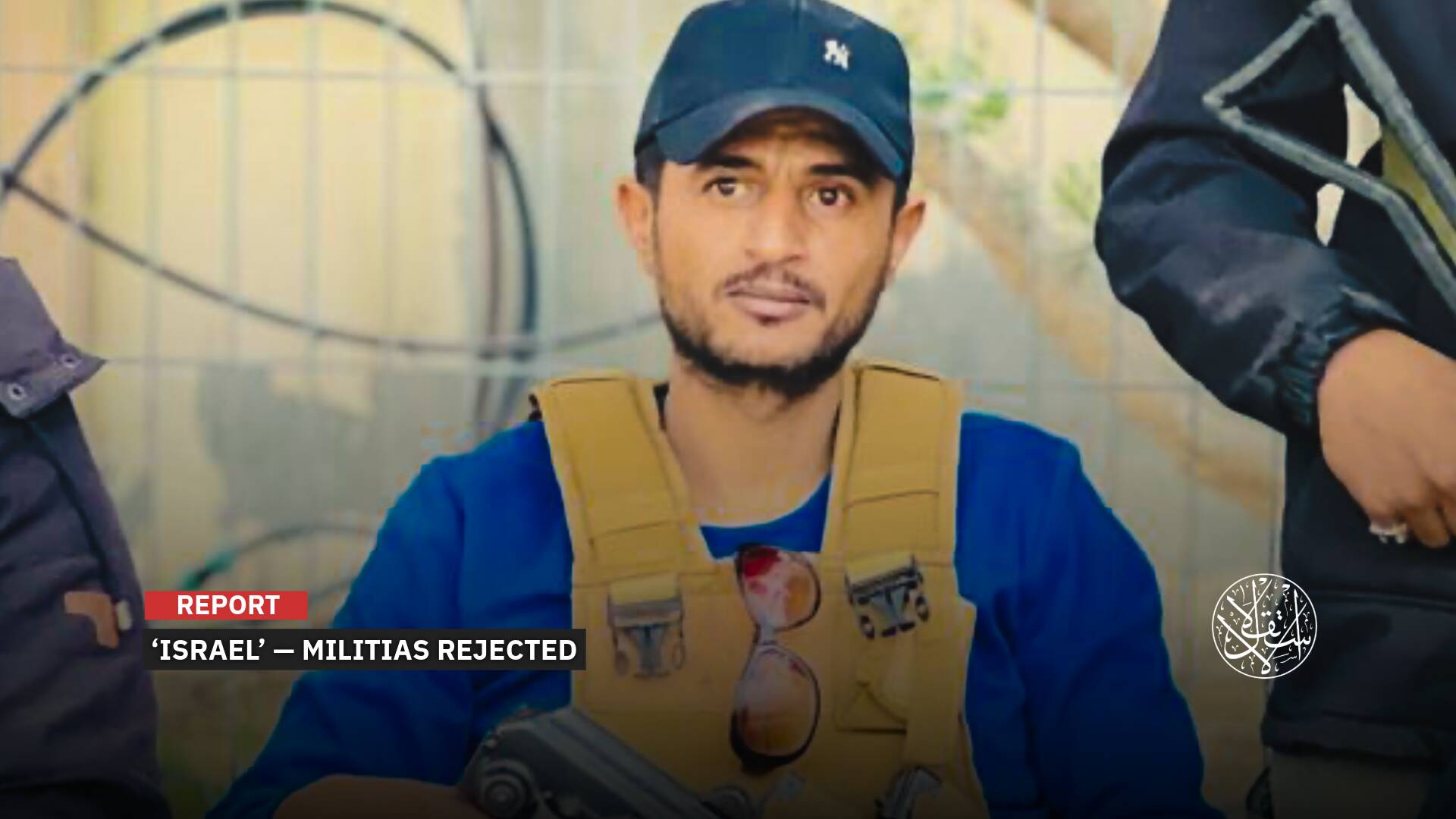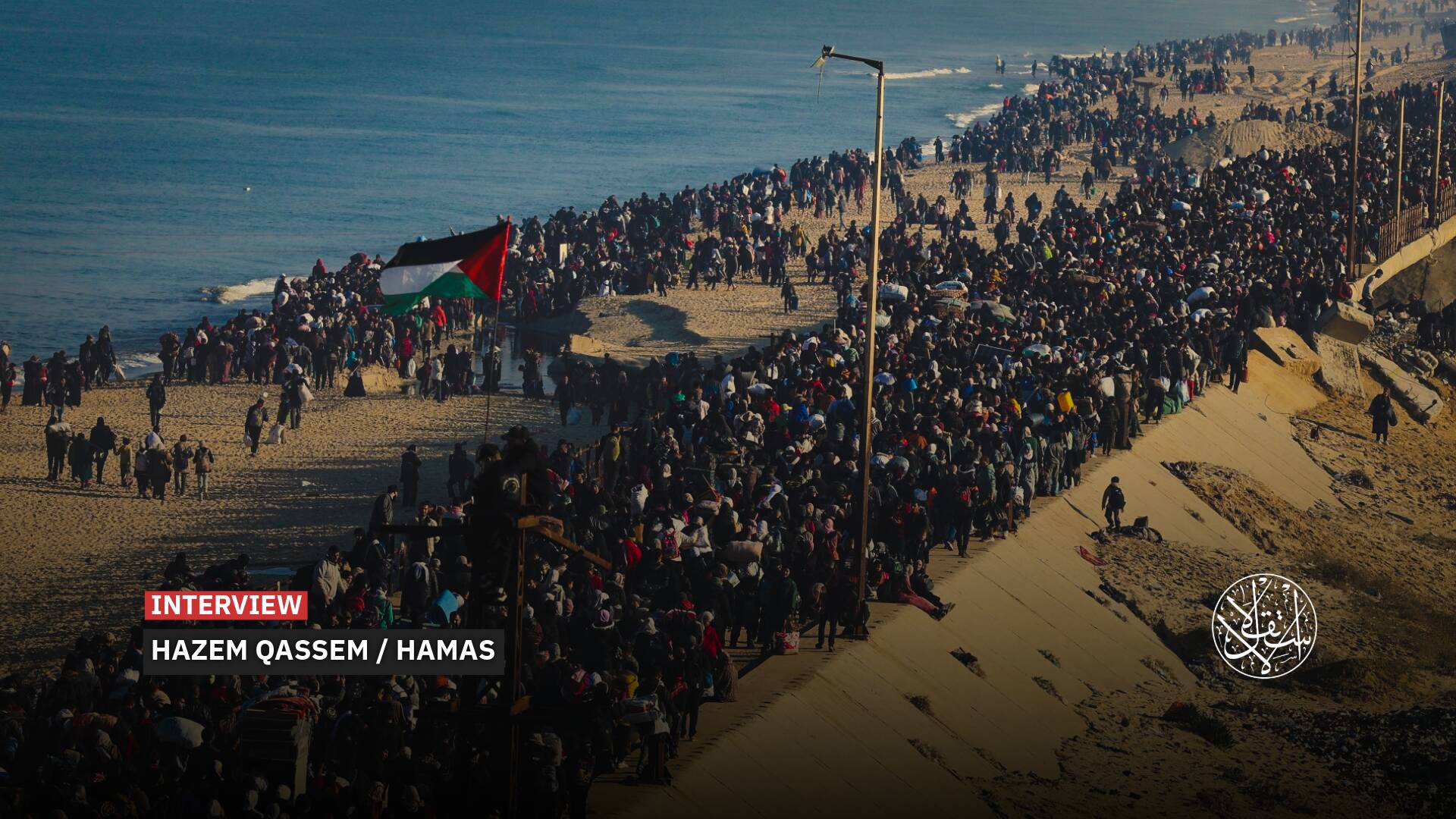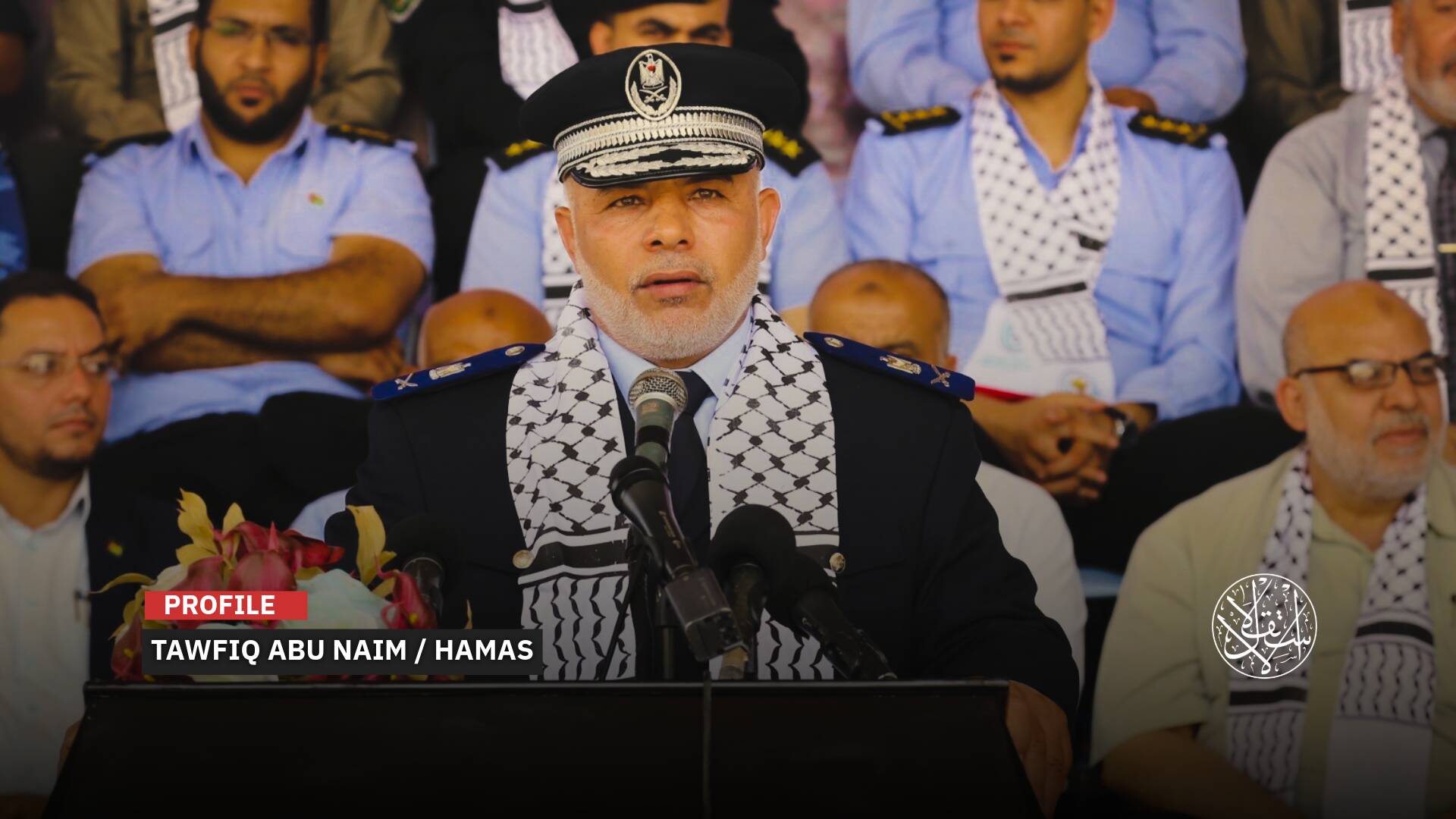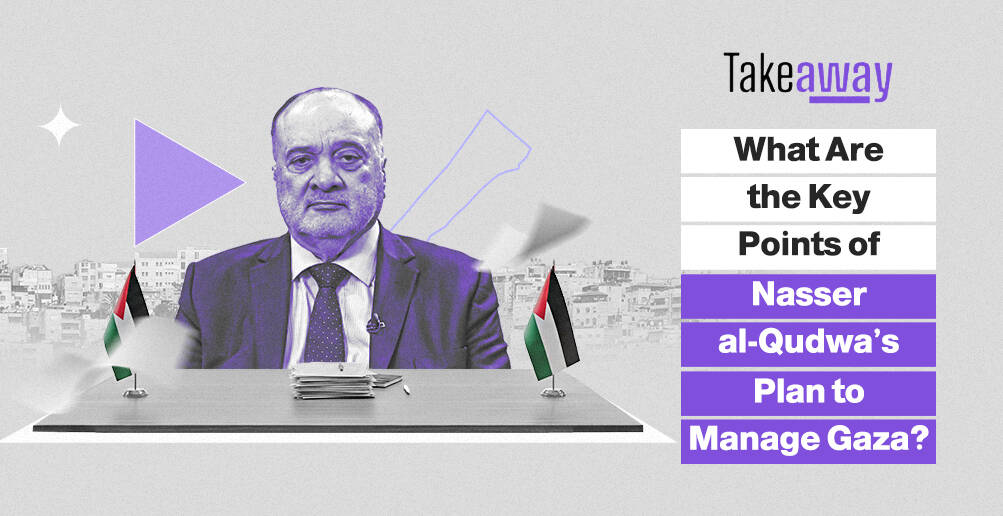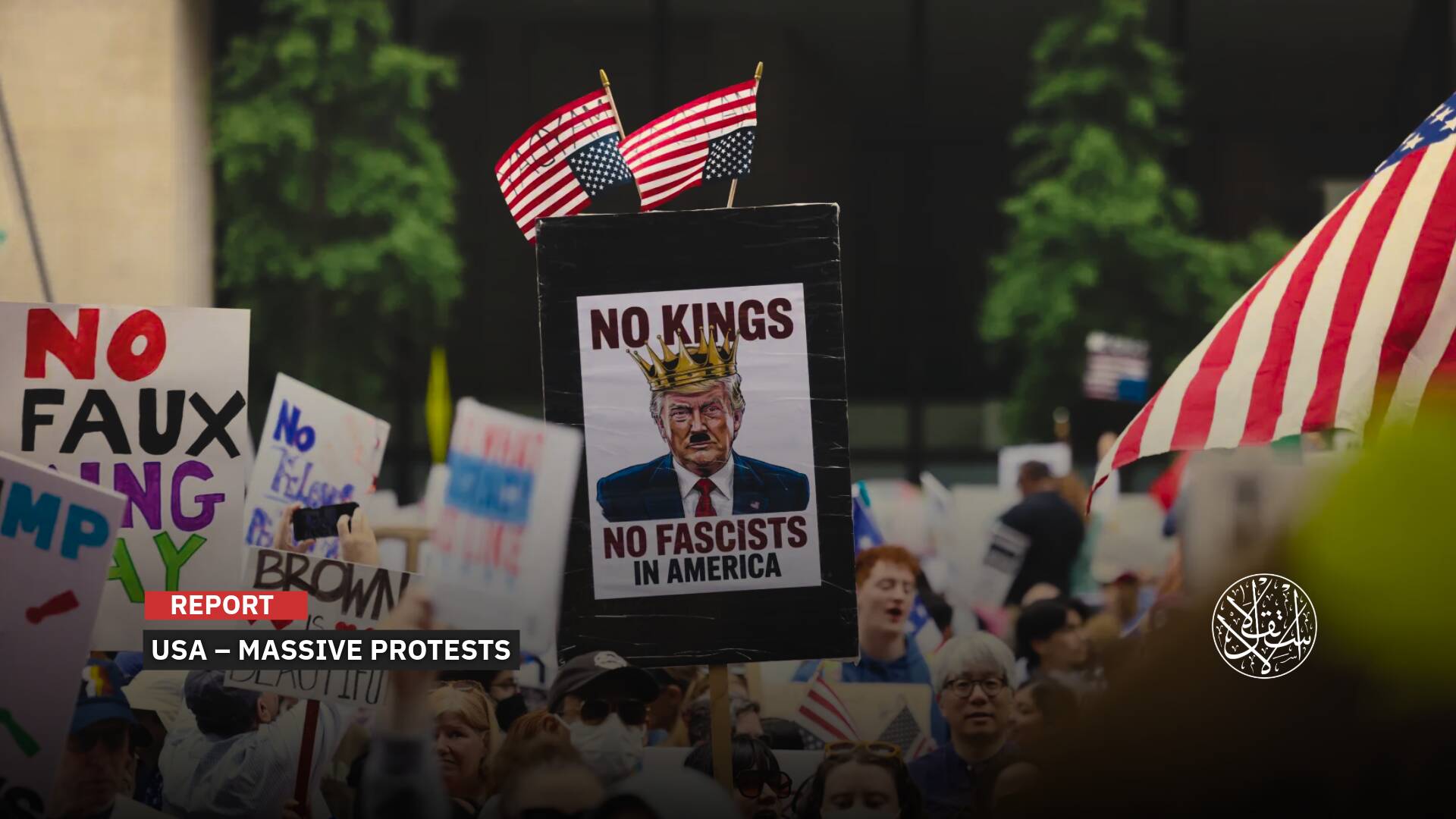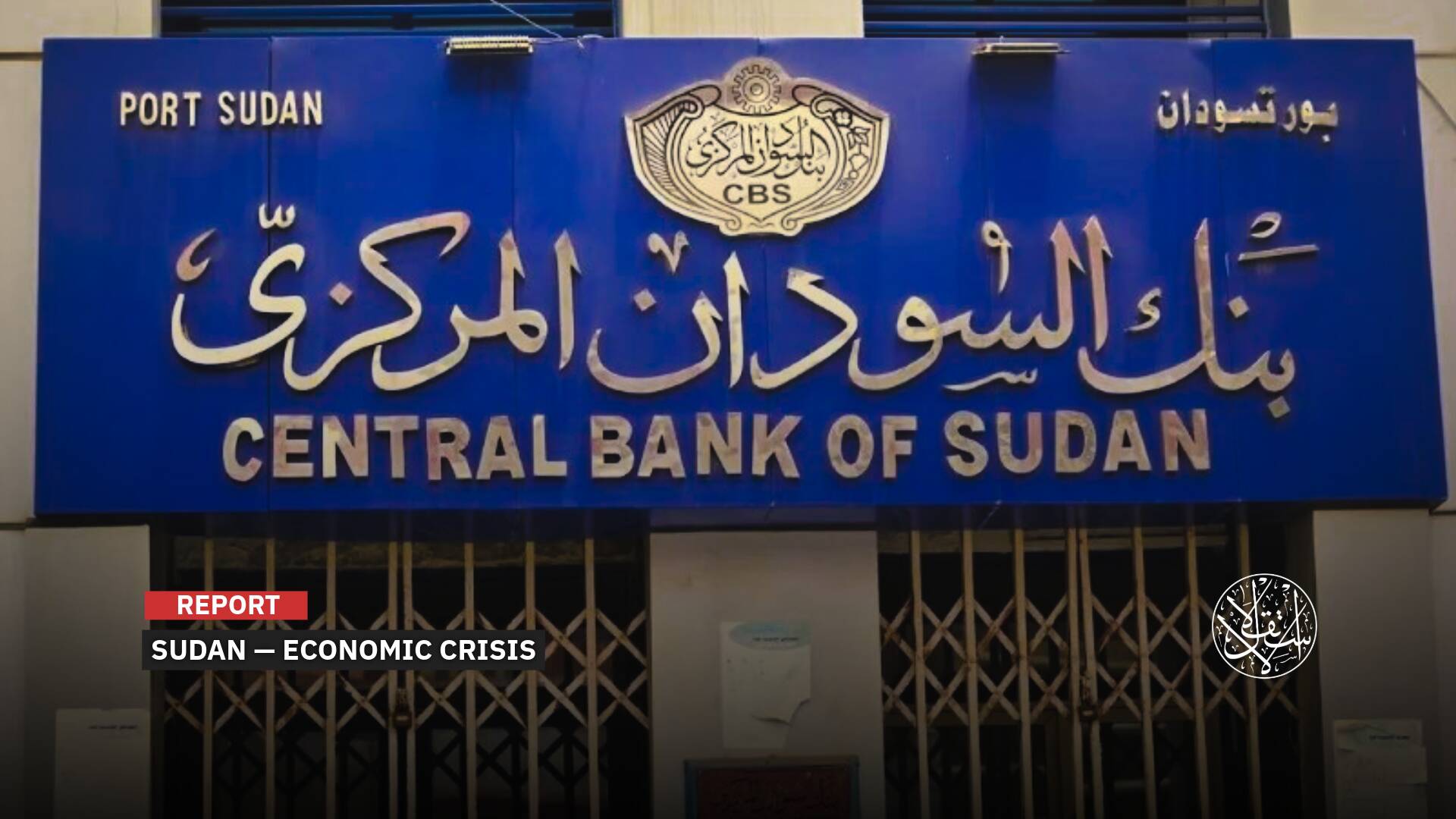Khaled Mashal; the Hamas Leader Who Haunts Israel

Khaled Mashal, Hamas's current diaspora director, and ex-chairman of its Political Bureau, has always been a target for Israel; just because he holds firm the fixed principles of Palestinian’s Cause, and defends the rights of the people.
Back in time, on September 25, 1997, the Israeli Mossad tried to assassinate him, under the direct instructions of the then Israeli Prime Minister Benjamin Netanyahu. On that day, Mossad agents entered Jordan with forged Canadian passports. They sprayed poison into the Mashal’s ear on a street in Amman, Jordan, but they had been captured while fleeing and arrested by the Jordan authorities. Jordan’s late King Hussein bin Talal vowed to sentence the agents to death if Mashal died, and told this to Netanyahu. The latter refused and the attempt to assassinate Mashal became a political issue. Desperate to avert an international crisis that would derail his efforts to broker peace deals between Israel and its Arab enemies, President Bill Clinton intervened, insisting that Netanyahu provide the antidote.
The Israeli leader grudgingly complied, even traveling to Amman to issue a personal apology to the King. Mashal was revived, his stature forever enhanced as “the living martyr.” Instead of killing one of Israel’s most despised enemies, Netanyahu had resurrected him.

Establishing Hamas
Official Hamas media announced that Former Hamas chief Khaled Mashal, who has not held an official leadership position in the organization for years, will return to serve as the director of its diaspora under his successor Ismail Haniyeh.
Khaled Mashal joined the Muslim Brotherhood (the Palestinian wing) in 1971, and had a major role in the affiliation of many to the Muslim Brotherhood in which he held the highest positions. In fact, Mashal participated in the establishment of the Islamic Resistance Movement - Hamas in 1987. He became an active member until he was elected in 1996 as head of the movement's political bureau.

The last Hamas internal vote was conducted in 2017. Haniyeh took the top spot at the time, replacing Meshal, who had held the post since 1996. Haniyeh had previously served as Hamas's Gaza chief.
Hamas's internal organization is divided into four main areas: Gaza, the West Bank, Israeli prisons, and the diaspora. Meshal, who lives in Qatar, is well-connected with Hamas's key patrons in Doha and Ankara, positioning him well to serve as the movement's envoy abroad.
More Than a Teacher
Khaled Meshal was born on May 28, 1956 in Silwad village, Ramallah. He received primary education there until 1967, when he immigrated with his family to Kuwait. He lived there until he received his BA in Physics from Kuwait University. In the seventies of the last century, Kuwait University was teeming with Arab intellectual currents, including the Palestinians in particular. Meshal was polically mature, he led the Palestinian Islamic movement at Kuwait University, and participated in the establishment of the Islamic Right Bloc, defending the Paletanian case.
Meshal graduated in 1978 and worked as a physics teacher in Kuwait.
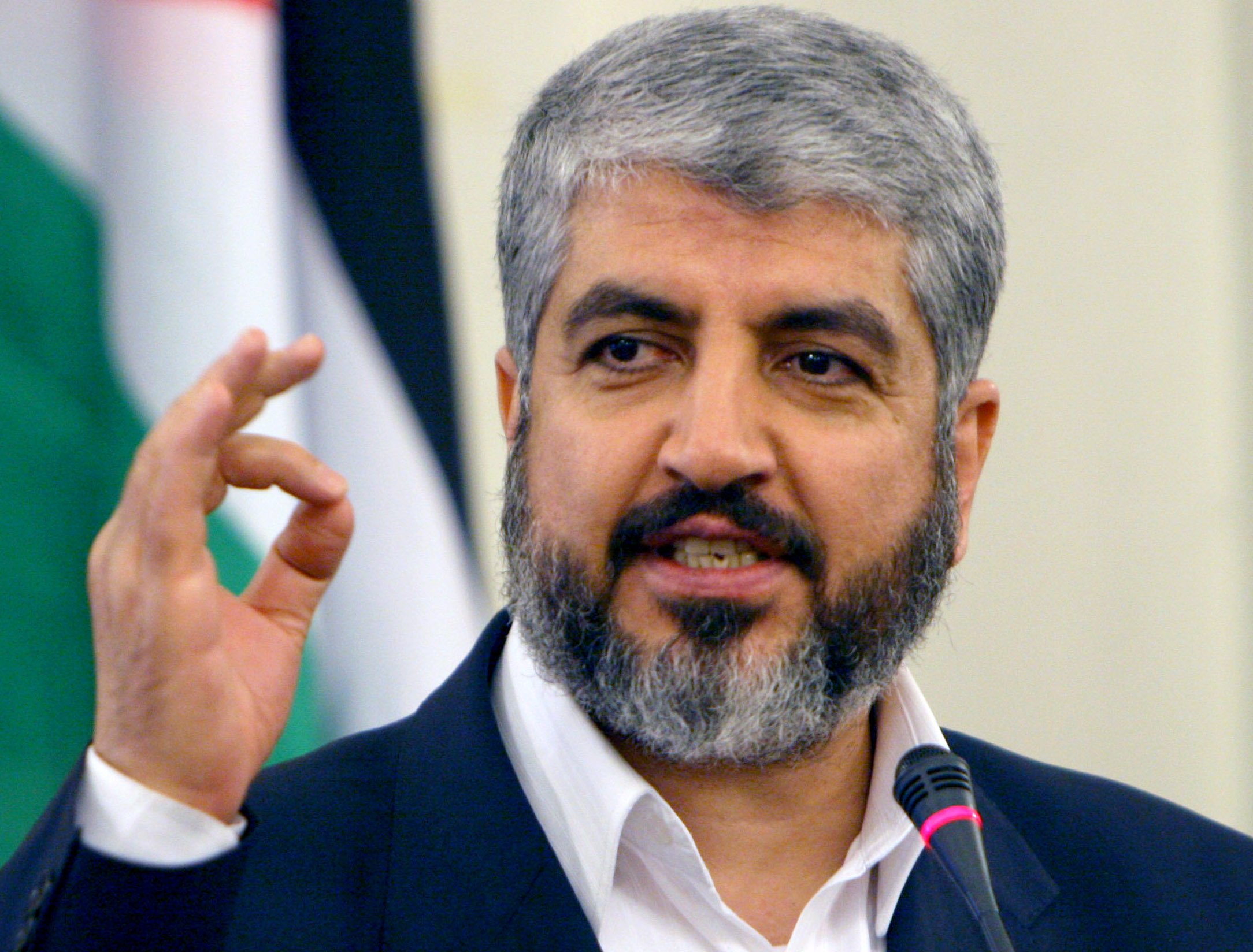
Living with Quran
Being a politician and a teacher, Khaled Meshal holds a license in the Holy Quran. He began learning parts of the Noble Quran at an early age, and in secondary school he mastered the rules of intonation. Mishaal began learning parts of the Noble Quran by heart at an early age, and at the beginning of his university stage, he learned Surat Al-Baqarah in two weeks, and then Surat Eli Omran in ten days. But because of his studies in the university, he did not have enough time to learn more until he traveled to Syria, where he continued learning with the help of Syrian sheikhs. He finished learning the Quran by heart in 2007.
Supporting Syrian Revolution
The political relations between Hamas and the Syrian regime have gone through ups and downs since its founding.
The Syrian regime provided support in various fields to the movement, ensuring its political stability and military development.
However, with the outbreak of the Syrian revolution in 2011 and the Syrian regime’s adoption of a military solution in the face of peaceful demonstrations, pressures increased on the movement to come up with a clear position, either standing by the regime and violating the principles of resistance and people’s support, or siding with the Syrian people, and thus losing its largest political supporter in the region .
Hamas issued its first position, affirming in a statement, on April 2, 2011, its support for the Syrian people and leadership, saying, “What is happening in the internal affairs concerns the brothers in Syria, but based on our principles that respect the will and aspirations of the Arab and Islamic peoples, we hope to overcome current conditions; In a manner that achieves the aspirations of the Syrian people, and preserves Syria’s stability and internal cohesion.”
The relationship between the Syrian regime and Hamas was not good any more. In October 2012, the Syrian television attacked the head of the Political Bureau, Khaled Meshal, in a stinging manner, describing him as a “displaced and orphan resistance fighter who was looking for a shelter before Damascus opened its doors for him.”
The regime’s security services also stormed all the movement’s offices in Damascus and closed them with red wax, including Mashal's office in the Mezzeh area, and confiscated its contents, according to a statement by the movement on November 7, 2012.
On the other hand, Meshal announced his support for the Syrian revolution in a clear way, when he raised the flag of the Syrian revolution during the twenty-fifth anniversary of Hamas , which was held in Gaza City on January 8, 2012.
Moderate Positions
In an interview with the British Channel 4, on July 1, 2013, Meshal confirmed that the movement left Damascus when it failed to persuade the regime to take an approach other than the military one, and said that “the regime tried to exert pressure to attract the movement to the official position and support its military policy, but Hamas remained faithful to its principles and stances so Hamas left Syria.”
Palestinian political analyst, Talal Nassar, says that "Hamas" kept its positive neutral position at the beginning of the Syrian revolution, and said that "the demands of the Syrian revolution are the Syrian people’s rights." As head of Hamas Movement, Khaled Meshal supports the palestanian case and all the arab revolutions that call for dignity and legitimacy especially the Egyptian revolution that took a wrong turn with the assassination of the only legitimate president Mohamed Mursi.
The movement has been subjected to some pressures, “but it has principles that won’t change. It won’t accept to be a false witness to murder and bloodshed. It won't accept blackmail to stay inside Syria. Hamas left but kept its principles and clear stances”
_%D9%8A%D9%8A%D9%8A%D8%B4.jpg)
Latest War on Gaza
Bravely, as his habit, Mashal commented on the latest war that errupted on Gaza last May due to the uprising in Sheikh Jarrah, Jerusalem, by saying: "Jerusalem is on fire and will not be under the feet of the Zionist invaders."
This came during a speech festival, organized remotely by the "Moroccan Authority for Supporting the Nation's Issues" (non-governmental), coinciding with the escalation of attacks on Palestinians in Jerusalem by the Israeli police and settlers.
Meshal added that "despite all that we are suffering from, and despite our enemies being armed with international forces and trying to divide the nation and thinking that they won, God willing, they will be defeated soon."
He continued, "There is no life for us without Jerusalem."
He added: "Jerusalem is not a political, religious, spiritual and civilized capital, it is rather the past, present and the future. It is the land which God promised us it will be the land of decisiveness with the Zionists in the first and last round."
He explained that "what is happening in the Sheikh Jarrah neighborhood is ethnic cleansing by displacing families with a history and a present in the neighborhood."

Haunting Israel
Khaled Meshal, confirmed that the last battle demonstrated the extent of Israel's weakness and that the conflict with it had entered a new phase with clear features.
Meshal explained in an interview on Al Jazeera Mubasher that there are two facts imposed by the last battle. The first is that the Palestinian resistance can establish a strategy for the liberation of Palestine and the restoration of Al-Aqsa, and the second is that Israel “is not an invincible army, as Israel has grown old and lives on external support, so its defeat is possible.”
He added that in light of these two facts, "it is required that we do not remain in the cycle of division, elections and reconciliation only, but we have to be united on the battlefield and in our political decision, we have to rise up and support the resistance."
He added, directing his speech to Arab and Islamic countries, "Today, Arabs and Muslims are absent from the regional and international scene. They are without leadership or future projects. The issue of Al-Quds and Al-Aqsa allows them to follow a strategy that makes the world respect them."
He added, "Some Western parties wanted, by rushing to talk about a cease-fire, to save Israel from the foolishness it had fallen into, because the battle is not only in Jerusalem, nor only Gaza rockets, but also in the Palestinian heartland.
According to Khaled Meshal, there are 4 messages that the Palestinian resistance wanted to deliver from Gaza, Al-Quds and Al-Aqsa are a red line, and the resistance is now ready to win this major cause. The absurd gambles made by Israel's leaders will not be made at the expense of Palestinian blood, and they will pay the price”.
Brave words from a brave leader whose firm stances have always been a lesson to all Arab and Muslim leaders and that is why Israel fears this man, who has never bowed his head to Israel.
Sources
- Life of Khaled Mashal
- Khaled Mashaal: Hamas Leader Hunted by Netanyahu Haunts Israel
- Khaled Mashaal tapped as Hamas's diaspora director
- خالد مشعل: القدس ملتهبة ولن تستقر تحت أقدام الغزاة
- حركة حماس الفلسطينية تنتخب زعيمها السابق خالد مشعل رئيسا لمكتبها السياسي في الخارج
- خالد مشعل: إسرائيل شاخت وانتهت والمعركة فرضت حقائق جديدة (فيديو)




